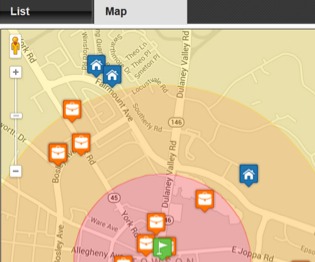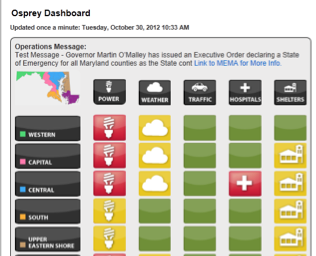Cgis Gis Day 2013 On Flowvella
Acknowledged by connoisseurs as a solo dancer of repute and a creative choreographer of rare caliber, Prerana Deshpande is among the leading solo dancers of her generation in Kathak, the traditional classical dance form of north India. Prerana started learning Kathak from an early age in India and today is internationally acclaimed as a creative dancer whose work reveals the perpetually expanding horizons of the traditional form.
She is renowned for her exquisite command over the fundamentals of Kathak - rhythm, grace, and expression and for her creativity. Greatly appreciated by all audiences for her expertise in Kathak, she is the recipient of numerous awards and is regularly invited to perform as a solo artist at all major venues and festivals in India and abroad. By introducing classical arts forms from India, SPICMACAY events aim to inspire, educate and thrill students and public during their interactive events. SPICMACAY is run purely by student volunteers, in over 300 chapters in schools, colleges and universities worldwide. All events are always free and interactive. Co-sponsored by SPICMACAY and South Asian Studies.
Earn credit for GAP. International Expo October 1, 10:00am-4:00pm 4th Floor, Kansas Union Representatives from international offices and organizations will be available to talk to students about the international opportunities on campus. September 2014 Global Food For Thought: The Politics of Tribes in Jordanian Elections Thursday, September 25, 12:30 pm Bailey 318 Gail Buttorff, Assistant Professor of Political Science, will examine the role of tribes in the electoral process in Jordan. In particular, she will discuss the socio-economic changes and governmental actions that have resulted in the increased fragmentation of tribes. The lack of coordination between and among Jordanian tribes is one source for the large number of candidates competing for each seat in Jordanian parliamentary elections.
A light lunch will be served. Earn credit for GAP. Middle East Lecture Series: Dynamics of Change Is there a 'Middle East'? The Strange History of a Term and its Implications Friday, September 26, 7:30 pm Burge Union, Gridiron Room Unlike 'South America,' there is no geographical underlay to what we call 'The Middle East.' Since most Muslims live elsewhere, it isn't even strongly demarcated by culture. What is the origin and history of the term?
What does it tell us about power/knowledge in geopolitics today? Juan Cole is a professor at the University of Michigan, commentator on the Middle East, and founder of the weblog, Informed Comment. Cole is author of The New Arabs: How the Millennial Generation is Changing the Middle East (2014) and Engaging the Muslim World (2009). Both books will be available for sale at the lecture. Presented by the KU Middle East Studies Program & KU Honors Program. Co-sponsored by Center for Global & International Studies, Department of Religious Studies, Department of Political Science, Hall Center for the Humanities, Department of History, Department of Geography, KU Students for Justice in the Middle East, Arab Student Union, Jayhawks Without Borders.
Earn credit for GAP. The University of Kansas on the basis of race, color, ethnicity, religion, sex, national origin, age, ancestry, disability, status as a veteran, sexual orientation, marital status, parental status, gender identity, gender expression, and genetic information in the university's programs and activities. Retaliation is also prohibited by university policy.
Geographic information science or geographical information science ( GIScience) is the scientific discipline that studies data structures and computational techniques to capture, represent, process, and analyze. It can be contrasted with (GIS), which are software tools. British geographer defined this area in the 1990s and summarized its core interests, including spatial analysis, visualization, and the representation of uncertainty. GIScience is conceptually related to, and, but it claims the status of an independent scientific discipline.
Since its inception in the 1990s, the boundaries between GIScience and cognate disciplines are contested, and different communities might disagree on what GIScience is and what it studies. In particular, Goodchild stated that 'information science can be defined as the systematic study according to scientific principles of the nature and properties of information.
Geographic information science is the subset of information science that is about geographic information.' Another influential definition is that by GIScientist, which states: Geographic Information Science (GIScience) is the basic research field that seeks to redefine geographic concepts and their use in the context of geographic information systems. GIScience also examines the impacts of GIS on individuals and society, and the influences of society on GIS. GIScience re-examines some of the most fundamental themes in traditional spatially oriented fields such as geography, cartography, and geodesy, while incorporating more recent developments in cognitive and information science.
Cgis Gis Day 2013 On Flowvella Download

It also overlaps with and draws from more specialized research fields such as computer science, statistics, mathematics, and psychology, and contributes to progress in those fields. It supports research in political science and anthropology, and draws on those fields in studies of geographic information and society. Www.josis.org.: (inactive 2018-11-23).
Retrieved 2015-09-18. Duckham, Matt; Goodchild, Michael F.; Worboys, Michael (2004-11-23). Goodchild, Michael (1992). 'Geographical information science'. International Journal of Geographical Information Systems.
6 (1): 31–45. Duckham, Matt; Goodchild, Michael F.; Worboys, Michael (2004-11-23). Goodchild, Michael F. 'Geographic information systems and science: today and tomorrow'. Annals of GIS. 15 (1): 3–9.

External links.